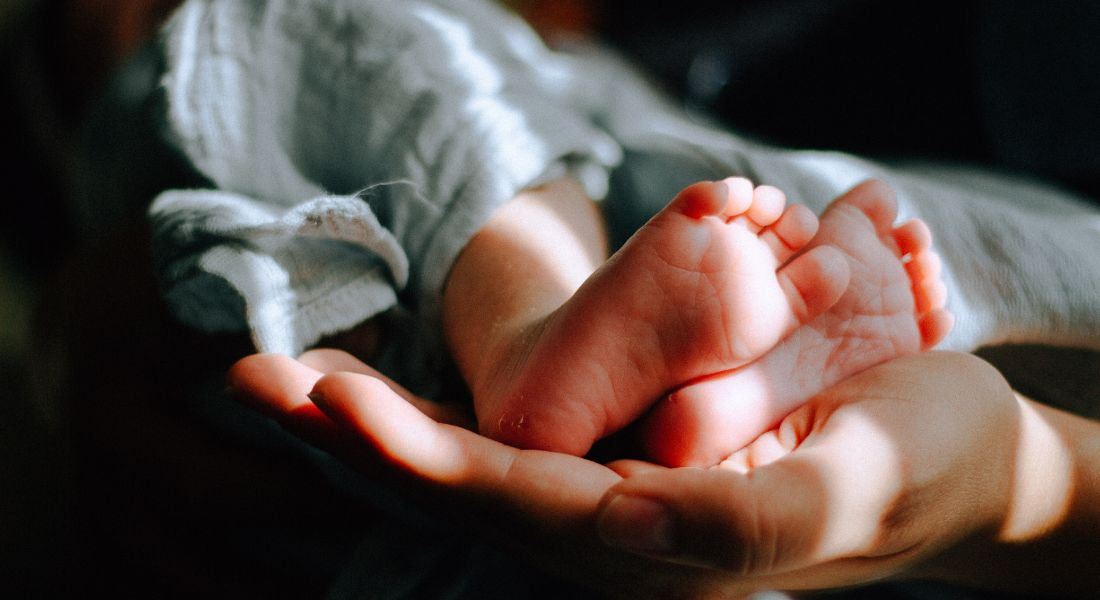Did Hormonal Birth Control Make You Depressed? If So, You May Be At Higher Risk Of Postpartum Depression
POSTPARTUM DEPRESSION Postpartum depression can have great impact on maternal mental health and infant development. New research shows that a woman’s history of mental side effects to hormonal birth control, such as the contraceptive pill or the intrauterine device, may indicate an increased risk of postpartum depression.
 "The results of the study suggest that women who developed a medically treated depressive episode shortly after they started hormonal birth control are at greater risk of developing postpartum depression," says researcher behind new study. Photo: Unsplash. Inability to feel happy, low spirits, fatigue, and loss of appetite. These are common symptoms of postpartum depression. When left untreated, postpartum depression can affect infant development or in worst case result in the mother committing suicide.
"The results of the study suggest that women who developed a medically treated depressive episode shortly after they started hormonal birth control are at greater risk of developing postpartum depression," says researcher behind new study. Photo: Unsplash. Inability to feel happy, low spirits, fatigue, and loss of appetite. These are common symptoms of postpartum depression. When left untreated, postpartum depression can affect infant development or in worst case result in the mother committing suicide.
New research from the University of Copenhagen shows that we may be able to help some of the mothers at risk of developing postpartum depression by knowing if hormonal birth control had affected their mental health in the past.
“The results of the study suggest that women who developed a medically treated depressive episode shortly after they started hormonal birth control are at greater risk of developing postpartum depression than women who also suffered from depression in the past, but not in related to initiation of hormonal birth control,” says first author of the new study, Doctor and PhD Student Søren Vinther Larsen from the Department of Clinical Medicine at the University of Copenhagen and the Neurobiology Research Unit at Rigshospitalet.
According to the researchers behind the new study, this may be because some women are more susceptible to both the hormonal changes caused by hormonal birth control as well as in relation to pregnancy and delivery.
This knowledge may be able to help midwives and doctors identify women at risk of developing postpartum depression.
“When women start hormonal birth control, their body and brain are exposed to synthetic sex hormones and the body’s own production of sex hormones is suppressed. Some women appear to be more susceptible to these changes than others – in some, it may lead to a depressive episode. Women undergo great hormonal changes in relation to pregnancy and delivery, and it is believed that these changes can contribute to the development of some postpartum depressive episodes,” says Søren Vinther Larsen.
Hormonal sensitivity
The fact that postpartum depression is associated with a history of depression is not news to the researchers. But this is the first time it has been associated with depression related to hormonal changes, e.g., in relation to initiation of hormonal birth control.
“We wanted to determine whether some women of child-bearing age are more susceptible to hormonal changes than others. And the results of the study suggest that this is indeed the case,” says Søren Vinther Larsen.
The study is a so-called register study including health data on almost 200,000 primiparous women. The researchers were only able to identify the most severe cases, i.e., when the doctor prescribed medical drug treatment or the woman were diagnosed with depression at the hospital.
Therefore, the results do not necessarily apply to milder cases, Søren Vinther Larsen explains.
“It could be interesting to explore whether this also applies to those who experience mental side effects such as mood deterioration from hormonal birth control, but which not necessarily developed into a full-scale depression. Such knowledge could really make a difference with regard to the possibilities of preventive strategies. It could help us identify the women we should keep an eye on in relation to pregnancy and delivery,” he says.
Publication: Søren Vinther Larsen, et al., Depression Associated With Hormonal Contraceptive Use as a Risk Indicator for Postpartum Depression, JAMA Network (2023). DOI: 10.1001/jamapsychiatry.2023.0807.
Original Story Source: University of Copenhagen

 Alerts Sign-up
Alerts Sign-up